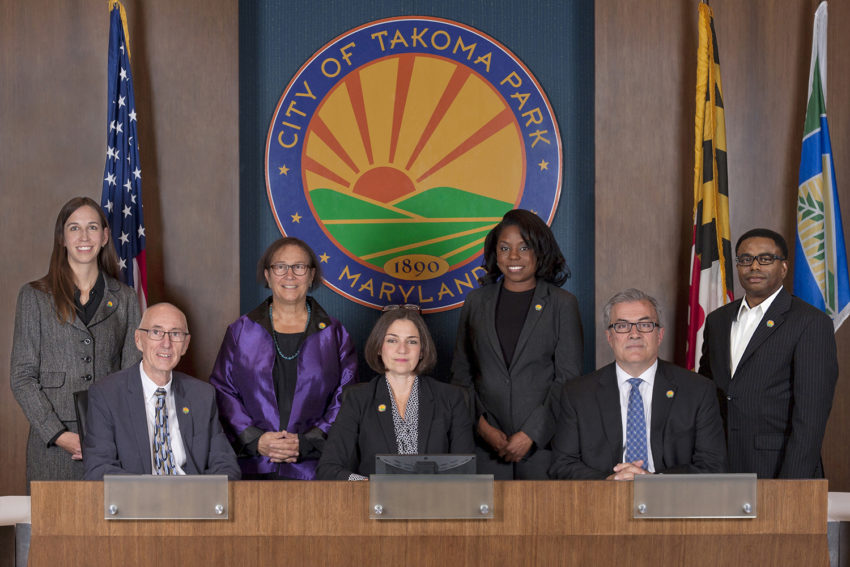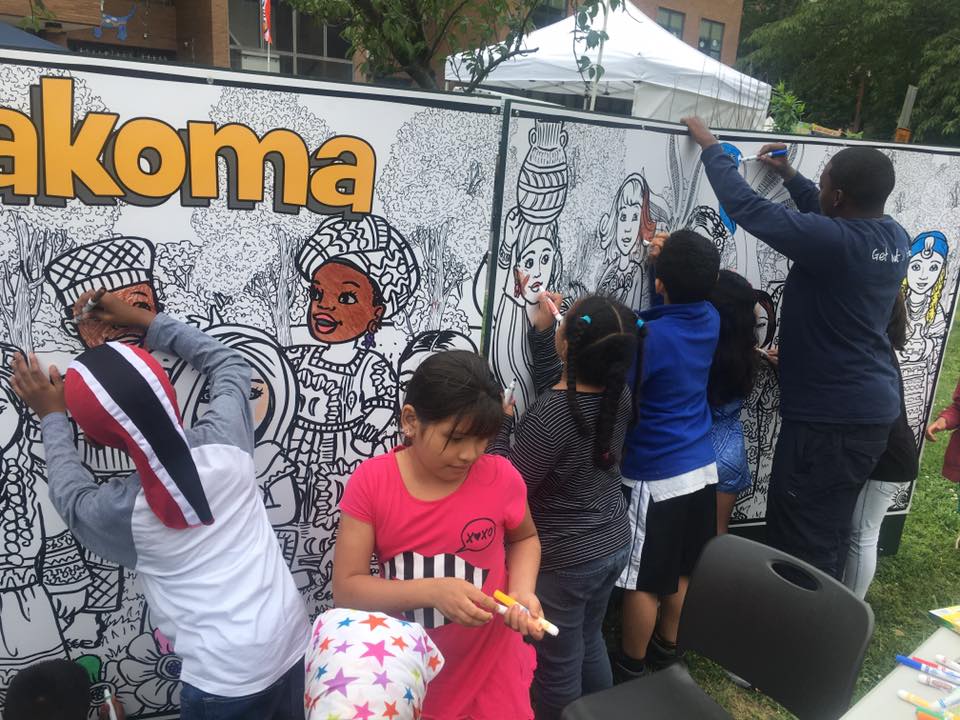
Share On Social!
In 2017, Takoma Park adopted a racial equity initiative to begin addressing institutionalized racism.
Latinos and people of color face numerous obstacles to opportunity across the lifespan due to racial bias in policies, institutions, and systems, which further contribute to health inequity.
Housing instability, for example is linked to poor health outcomes. More Latinos (56.9%) are burdened by housing costs than Whites (46.8%), meaning they have little money left over for health- and wealth-promoting assets, accord to a Salud America! research review.
Leaders in Takoma Park, Maryland (14% Latino) wanted to determine whether policies—even those that are seemingly neutral—were contributing to racial inequities. Like fiscal and environmental impact statements, the city began including racial equity impact statements on all city council agenda items. The city also began to offer racial equity training to members of Council-appointed committees and other residents.
Inequities in Takoma Park
In Montgomery County, Maryland (18.98% Latino) 31.68% of Latinos do not have a high school diploma compared to 4.49% of non-Latinos. Moreover, 15.69% of Latino children live in poverty compared to 7.18% of non-Latino children.
Inequities like these stem from a systemic history of racist policies, laws, and culture.
Takoma Park leaders sent a clear message: The status quo is still not fair.
If it was, an additional 600 Latinos would have a high school degree; an additional 1000 Latinos would have a bachelor’s degree; 300 fewer Latinos would be poor; and 200 more Latinos would be homeowners, according to the Urban Institute.
Takoma Park Mayor Kate Stewart understood the gaps in inequality.
After hearing a Race, Equity and Leadership presentation from the National League of Cities (NLC) , Stewart worked to explore ways the city could proactively apply a racial equity framework to their decision-making process, according to a profile on Takoma Park.
Takoma Park Leaders Looking at History of Racism
In January 2017, the City Council invited a speaker from the NLC to present and facilitate a discussion about racial equity.
More importantly, they discussed the ways decisionmakers can dismantle institutional racism.
The leaders looked at how the history of racism in America has led to imbalances in education, job attainment, housing, and many other factors that impact quality of life.

“In particular, we examined how racial inequity today is not just overtly racist talk or action but rather racial inequities have come to be ingrained and institutionalized in our policies and practices, even those we believe to be race neutral,” writes Stewart and Councilmember Jarrett Smith.
They understood that they needed to apply a racial equity lens in decision-making by updating, eliminating, or creating government policies, practices, and programs specifically to dismantle existing racial disparities.
Equity Considerations on the Agenda
In April 2017, the Takoma City Council passed a resolution to include a “Racial Equity Impact Statement” on every agenda item.
As with the fiscal and environmental impact statements, City staff use available data to develop the initial racial equity statements when creating agenda item memos. These statements are posted publicly prior to City Council meetings. This will prompt the community to discuss how an agenda may have an adverse impact on some residents more than others.
Since taking that first step in 2015, Takoma Park officials have taken dedicated steps to continue pushing for racial equity, such as:
- In 2017, city leaders attended a day-long training hosted by the Government Alliance on Race and Equity (GARE) on racial equity, and the city signed onto GARE’s Racial Equity Here commitment.
- In July 2018, the Council renamed the racial equity statement “Racial Equity Considerations” to emphasize that the content is not a final statement but is intended to generate discussion and inquiry.
- In early 2019, the City conducted a series of What’s my Bias workshops for members of city committees and other residents.
Councilmembers plan to work on developing and formalizing strategies to address racial equity issues, including how we organize, institutionalize, and operationalize the racial equity framework; offer racial equity training to members of Council-appointed committees and other residents; explore developing a task force on racial equity; and conduct a racial equity survey of City staff, according to the city of Takoma Park.
Racial Equity Considerations in Action
Lack of sufficient data led city leaders to add questions about resident’s race and ethnicity to their community-wide survey to better assess equity impact.
“The city was initially concerned that asking questions about residents’ race and ethnicity would be off-putting, due to an assumed ‘race-blind’ orientation, but believe differently now of the value and need for accurate information that does not obscure disparate impacts by race,” states NLC’s profile report .
The Council included equity language in its adopted Council Priorities, which are used as a tool to guide policy and budget decision making.
In 2018, residents raised question about how the proposed redevelopment of Takoma Junction might impact racial equity, such as:
- Is this location accessible to people who do not have cars, through public transit and/or safe walking/biking infrastructure? How might traffic or pedestrian impacts affect people of color?
- Does this project displace residents or create hardships for them? Who is impacted by any potential displacement or hardships? How would it affect existing local minority-owned business and property owners?

This led Councilmembers to identify ways the City could address racial equity, such as:
- Exploring potential ways to assist low-income homeowners through property tax assistance programs, and build on
- Exploring improvements in affordable housing policies and programs, including rent stabilization, the housing reserve fund, tenant advocacy and assistance, and more.
- Continuing discussions with the State Highway Administration and Montgomery County about the reconfiguration of the intersection, location of bus stops, and sufficient parking, and ensure we are considering racial equity impacts in assessments.
- Asking how can the City best use additional revenue from the development to advance racial equity in the City? For example, Council could allocate a percentage of the property tax or ground lease revenue to go directly to the affordable housing reserve or to fund local recreation programs that serve low-income families and children, such as the free Lunch and Learn summer camp or the ACES afterschool program at Essex House.
Could your city support or develop policies, practices, and investment in the community to proactively address issues of racism and inequality in your community?
Share with them how city leaders in Takoma Park are operationalizing racial equity.
Explore More:
Healthy Families & SchoolsBy The Numbers
142
Percent
Expected rise in Latino cancer cases in coming years



